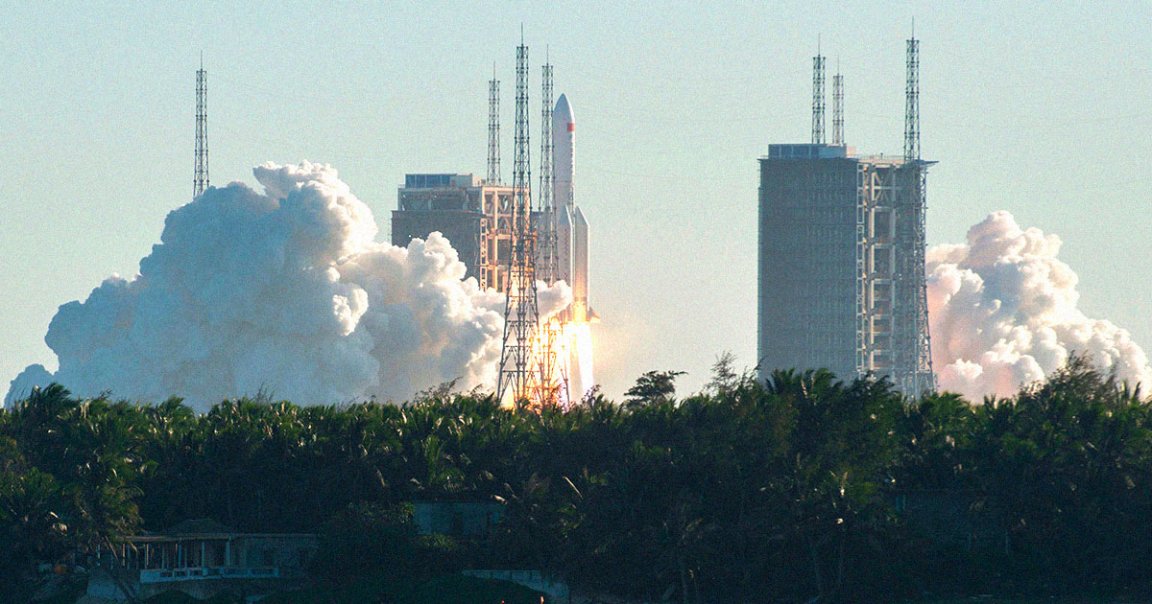
Space Junkie
A massive piece of Chinese space junk is slowly making its descent back down to Earth — and nobody is entirely sure where it will fall.
The 25-ton Long March 5B core stage, dubbed CZ-5B R, was used to launch a rand new science laboratory module for the country’s growing space station over the weekend.
Now, experts are tracking the rocket stage’s gradual reentry, with Aerospace Corporation predicting it will reenter the atmosphere on Sunday.
And that could potentially end in disaster. Since the rocket stage doesn’t have any way to change its own trajectory, it will simply plummet back down to Earth and land where it may — reckless behavior that has been decried by NASA in the past.
“Due to the uncontrolled nature of its descent, there is a non-zero probability of the surviving debris landing in a populated area — over 88 percent of the world’s population lives under the reentry’s potential debris footprint,” the Aerospace Corporation noted in a Tuesday blog post.
Litter Patter
According to the Corporation, only 20 to 40 percent of the mass of such a large object is likely to make it down to the ground after its fiery descent. In this case, that’d still amount to several tons of metal.
It’s not the first time China’s space program has pulled such a stunt. Over the last two years, the country has already launched Long March 5B missions followed by an uncontrolled reentry on two occasions.
In 2020, massive pieces of shrapnel showering down a small village on the Ivory Coast in West Africa. Last year, the rocket used to launch the core module of China’s space station splashed down in the Indian Ocean.
While we have yet to hear reports of anybody getting hurt because of these uncontrolled reentries, that doesn’t mean they won’t in the future.
In short, it’s a careless way to dispose of a rocket stage, especially considering the advent of reusable rockets.
“This risk is entirely avoidable since technologies and mission designs now exist that can provide controlled reentries (usually into remote areas of oceans) instead of uncontrolled and therefore entire random ones,” space junk expert and University of British Columbia professor Michael Byers told CNN.
READ MORE: Big Chinese rocket body will fall to Earth around July 31, experts predict [Space.com]
More on the launch: China Is Sending More Space Junk Hurtling Down to Earth